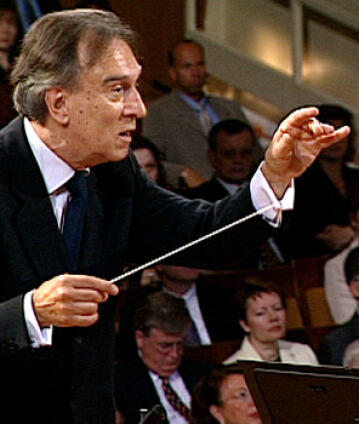Claudio Abbado conducts Beethoven’s Ninth Symphony at the 2000 Europakonzert in Berlin

Many performances of Beethoven’s Ninth Symphony are intended to give musical expression to a festive event. One such occasion was the 2000 Europakonzert from Berlin, conducted by Claudio Abbado – the tenth event of its kind. A stark contrast to Beethoven’s final symphony is provided by his Piano Concert in B-flat major – Beethoven’s first major orchestral work – with Mikhail Pletnev as the soloist.
Beethoven’s Ninth Symphony has become a classic worldwide hit due in particular to the final chorus with Schiller’s Ode to Joy. The composer himself had been thinking about a setting of the text for decades, but only in the Ninth did he find the right place for this utopian view of a world in which all men are brothers. The performance of the symphony in a European Concert is, as such, an obvious idea, as the melody to Schiller’s Ode has been the official anthem of the European Union since 1985 – in an arrangement that is incidentally by Herbert von Karajan.
The Piano Concerto in B flat major, which is generally considered to be Beethoven’s second work, but is his first major orchestral work ever according to the date of its composition, provided a charming contrast to Beethoven’s last symphony. Although the perfect musical balance of a Haydn or Mozart still prevails, there are already those unexpected accents and outbursts which Beethoven became famous for. In this way the work documents – as ultimately does the whole of the European Concert – a composer finding himself.
© 2000 EuroArts Music International
Category
Artists
Our recommendations
- 1994 Europakonzert from Meiningen with Claudio Abbado and Daniel Barenboim
- 1996 Europakonzert from St Petersburg with Claudio Abbado
- 2002 Europakonzert from Palermo with Claudio Abbado and Gil Shaham
- Claudio Abbado conducts works with a maritime theme at the 1998 Europakonzert from Stockholm
- Claudio Abbado conducts Mozart at the 1991 Europakonzert from Prague
- 2005 Europakonzert from Budapest with Simon Rattle and Leonidas Kavakos